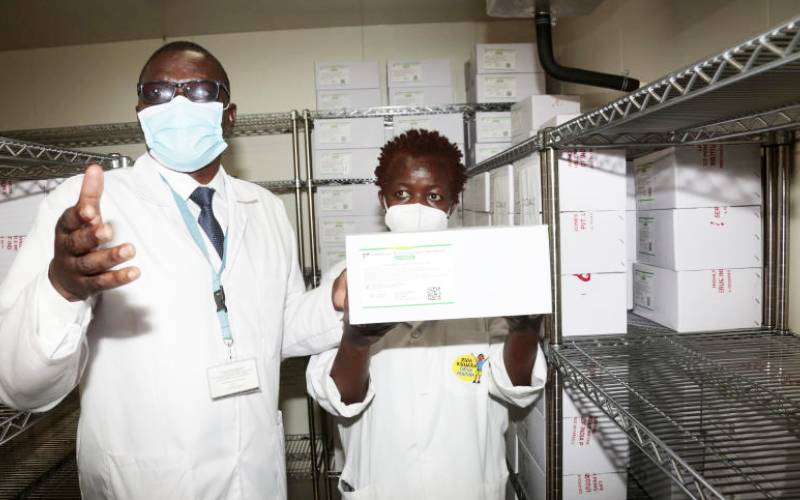×
The Standard e-Paper
Kenya’s Boldest Voice

MoH Head of National Vaccine and Immunization Program Dr Collins Tabu and Bio-Medical Engineer Catherine Silali at Kitengela Central Vaccine depot on March 4, 2021. [Boniface Okendo,Standard]
The first jab of the Oxford/AstraZeneca vaccine is expected to be administered today to the first Kenyan at the Kenyatta National Hospital.